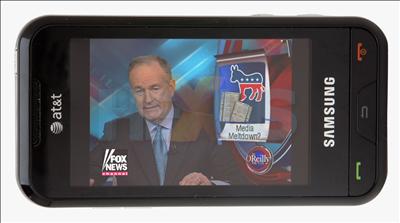European challenge
But readers outside the US shouldn't go getting all excited just yet. There are no plans to launch the Flo TV Personal Television outside the US and it looks like Qualcomm has got a fight on its hands even establishing the broadcast technology over here.
The switch from analogue to digital broadcasting has freed-up additional spectrum for this sort of thing in the US and in Europe - including L-band spectrum in the UK - but that's just the start of it.
Qualcomm faces a daunting set of challenges if it wants to establish FLO TV in Europe to the extent it has in the US. Firstly, the European Commission has publicly endorsed rival technology DVB-H as its preferred mobile broadcasting. Then there's the small matter of building infrastructure and sourcing content.
"Setting up a mobile TV service is complicated," said Assayag. "We're not going to replicate our US approach internationally. This is a very costly process and the best people to implement such a venture are local companies with local content. We were conducting a trial in the UK with BSkyB back in 2006, since then we have been speaking to all the stakeholders."
Clearly Qualcomm wants a third party to share the burden of doing all this, with broadcasters, mobile phone operators and network infrastructure companies, looking for new markets after the analogue switch-off, all possibilities.
You don't need to be Nostradamus to see the huge potential of the mobile TV market, which is why Qualcomm is investing so much in it. However there are also huge costs involved and, as ever with mobile technology, competing standards, so it looks like only those with the deepest pockets need apply.














